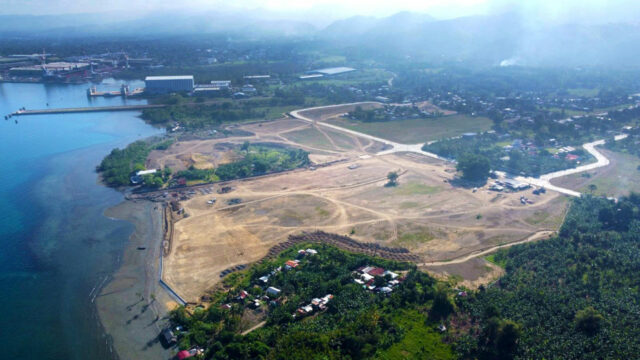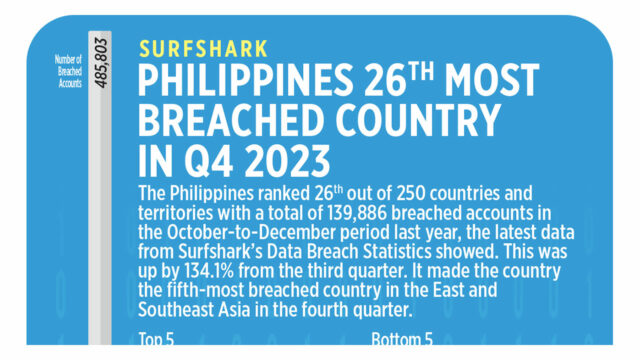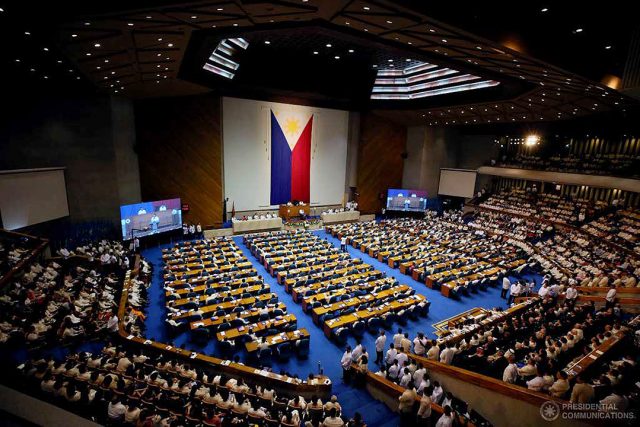By Kenneth Christiane L. Basilio
A BILL seeking to amend a law designed to revive the post-pandemic economy was approved on final reading by the House of Representatives on Monday.
The chamber approved House Bill No. 9794 with a vote of 238 legislators for, four against, and two abstentions.
CREATE MORE (CREATE to Maximize Opportunities for Reinvigorating the Economy) cuts the corporate income tax to 20% from 25% previously.
It also provides duty exemptions, value-added tax (VAT) exemptions on imports, and VAT zero-rating of local purchases for domestic-market and export companies.
Commenting on the bill, Jose Enrique A. Africa, executive director of think tank Ibon Foundation, said that repeated tax cuts on corporations reduce the National Government’s revenue.
“Taxes on corporations were equivalent to 3.5% of GDP (gross domestic product) in 2008 but tax cuts have brought this down to just 2.2% as of 2022,” he said.
“If the corporate tax effort had stayed the same, this would mean at least P276 billion more in revenue annually,” he told BusinessWorld in a Viber message. “In contrast, indirect consumption taxes (excise and VAT) increased from the equivalent of 2.5% to 3.6% of GDP over the same period.”
The proposed bill also harmonizes the Corporate Recovery and Tax Incentives for Enterprises (CREATE) Act and its implementing rules and regulations (IRR).
“Conflicting interpretations of the VAT regime under CREATE’s IRR also resulted in the loss of some 125,560 manufacturing jobs,” Albay Rep. Jose Ma. Clemente S. Salceda said in a statement, referring to the impact of the CREATE-IRR disparity.
“Manufacturing is sensitive to increases in cost, being a low-margin operation, so any undue increase in taxes in that sector also means job losses,” Mr. Salceda, who is also a proponent of the bill, added.
Filomeno S. Sta. Ana III, Action for Economic Reform coordinator, said that while “CREATE is a reform most lauded,” the problems surrounding its IRR should have been adjusted instead of being amended as a law.
“It undeniably is facing teething problems but that is a question of making implementation adjustments, not amending the law,” he told BusinessWorld via Viber. “The key reform behind CREATE is the rationalization of fiscal incentives.”
He said that the rigorous economic criteria of CREATE, where “economic benefits for the whole society, not private gains, are the prime consideration for the granting of incentives” is now facing amendment by CREATE MORE.
The proposed law returns the power to grant tax incentives to investment promotion agencies (IPA) such as the Philippine Economic Zone Authority and the Subic Bay Metropolitan Authority. The Fiscal Incentives Review Board (FIRB) will be turned into an oversight body for IPAs, according to the bill.
Mr. Salceda noted that the move to turn FIRB into an oversight body is due to the current FDI approval system “that requires multiple stages of submissions,” delaying their arrival in the country. “While the FIRB has resulted in a more complete analysis of where our tax incentives go, it also has the ability to delay the inflow of FDI by requiring multiple stages of submission.”
Ebb Hinchcliffe, American Chamber of Commerce of the Philippines, Inc. (AmCham) executive director, said in a Viber message: “AmCham welcomes final approval by the House of Representatives of the CREATE MORE bill. We look forward to the Senate deliberating and working on approval of its counterpart version when session resumes at the end of April.”
“We are hopeful that the final bill will be responsive to the needs of investors, especially on provisions related to work from home and the grant of incentives and tax refunds,” he added.
Information technology and business process outsourcing companies will also be allowed to “conduct business under alternative work arrangements,” according to the bill.
The bill also offers corporations a 200% deduction for power costs incurred during the Income Tax Holiday period. Trade fairs, missions, or exhibitions will also be allowed to deduct 100% of their accrued expenses.
“High power costs are an existential threat to Philippine industries, especially in the manufacturing sector,” Mr. Salceda said. “Because we cannot afford to subsidize power costs as our neighbors do, an enhanced deduction for power cost will be more targeted towards those who need competitive power rates to create jobs.”
Aside from the CREATE Act, the measure also seeks to amend the National Internal Revenue Code of 1997 and the Ease of Paying Taxes Act.















